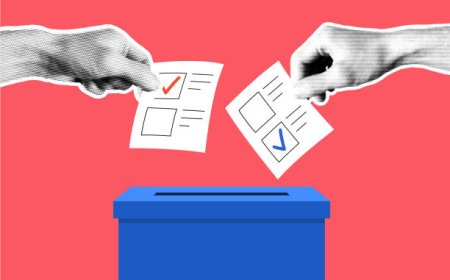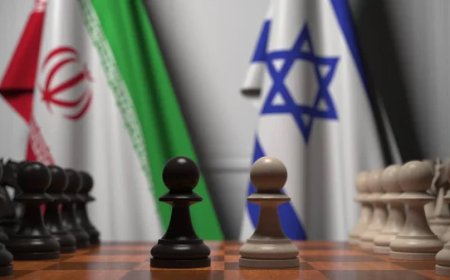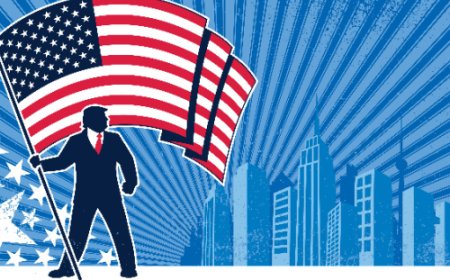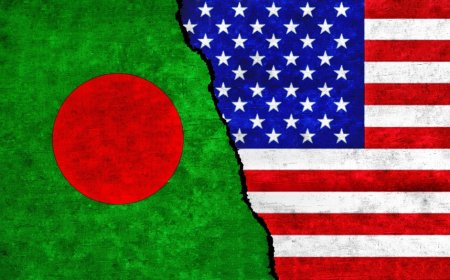Decoding the DC-Dhaka Dance
All things considered, it's remarkable that Bangladesh -- by no means a US ally or top partner -- is where it is right now: In a relatively stable place with one of the most unconventional and unpredictable US administrations in recent memory.
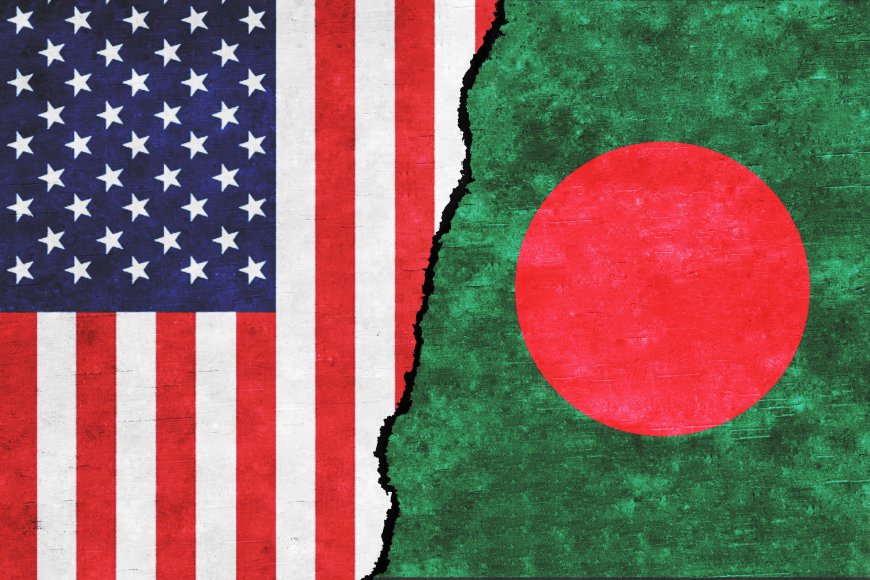
When US President Donald Trump took office in January, there was reason to fear that the US-Bangladesh relationship would face some dark days.
After all, Trump inherited a relationship from the Joe Biden administration that was focused on helping Bangladesh restore democracy. It revolved around matters like US development support and technical assistance for reforms.
There was no way that Trump, with his aggressively transactional approach to foreign relations, would buy into such a partnership.
Indeed, soon after taking office, he gutted most US foreign assistance -- thereby consigning development cooperation, long a pillar of US-Bangladesh bilateral ties, to a relic of the past.
Trump’s strong affinities for India -- and, though they were clearly made with an eye toward securing Hindu-American votes, comments he made during the US presidential election campaign about threats to Bangladesh’s Hindu community -- provoked fears that his administration might defer to Indian positions on Bangladesh.
The president’s tough talk on China and his reputation for bullying diplomacy suggested he may pressure Dhaka -- more so than did the Biden administration -- to scale back its economic cooperation with Beijing.
And Trump’s fixation on trade deficits raised the possibility that his administration would press Bangladesh to buy more American products, and fast -- something that isn’t easy for an
economy structured like Bangladesh’s to do -- with potentially punitive consequences if it failed to comply.
And yet, fast forward to today, and the picture looks brighter. The relationship is actually in a relatively good place.
The two sides have engaged on high levels -- including a call between Muhammad Yunus and US Secretary of State Marco Rubio, and a meeting between Yunus and Trump’s South Asia envoy Sergio Gor.
Military exercises continue to take place as well. Yunus, previously a harsh critic of Trump who sees eye to eye with him on very little, has taken a more conciliatory approach to him this time around.
At any rate, with Bangladesh’s election now set, he won’t be an interlocutor for the Trump administration for much longer.
Perhaps most important, Trump’s nominee for US ambassador to Bangladesh, Brent Christensen, is a true and well-informed friend of Bangladesh -- a diplomat who knows the country well and served there previously.
During his Senate confirmation hearing, he spoke of its economic potential and strategic importance, and acknowledged that it doesn’t get the attention it deserves.
There are no major bilateral tension points. The administration reduced tariffs on Bangladesh from 35 to 20 percent -- comparable to many of its biggest Asian apparel export competitors.
Similarly, the halting of American foreign assistance has put Bangladesh in a tough place, but emergency aid to Rohingya refugees there is one of the few aspects of US aid that avoided the axe.
The relationship has also benefited from geopolitical developments. US-India tensions reduce the likelihood that the Trump administration will take New Delhi’s lead on Bangladesh policy.
True, Gor will be posted in Delhi in his dual-hatted role as US ambassador to India and special envoy for South Asia. But this can actually be helpful for Dhaka: Gor’s proximity to Bangladesh gives him the opportunity to be a frequent visitor there.
Additionally, Trump hasn’t articulated a clear policy on China, though he has signaled a desire to ease tensions to an extent—likely to reduce the risk of a future conflict with China, and to minimize the possibility of Beijing using its vast economic clout to undercut America’s commercial interests.
Similarly, the future trajectory of the US Indo Pacific policy -- which revolves around countering China -- is in question at the moment. This all suggests Dhaka will face less, not more, US pressure as it continues its longstanding policy of balancing its ties with the US and China.
Furthermore, a potential new pillar of US-Bangladesh partnership -- which to this point has been unable to materialize -- is now beckoning.
The US International Development Finance Corporation (DFC) marshals private investment to help advance US strategic interests -- a perfect encapsulation of a core Trump administration foreign policy goal.
In recent years, the DFC has developed a sizable portfolio in some areas of South Asia, especially India. But it has declined to invest in Bangladesh due to labor rights concerns.
However, there are indications, going back to the latter period of the Biden administration, that Dhaka and Washington have made progress in addressing these concerns. Bangladesh officials have recently engaged with the DFC.
If the DFC enters Bangladesh, both countries would benefit. It would bring in a new form of US support that helps address Bangladesh’s development needs (the DFC’s investment priorities include agriculture, energy, and health), and compensates for the loss of US foreign assistance.
It would counter, even if only to a degree, China’s investment footprint in Bangladesh. It would also provide a useful platform to leverage the resources and connections of the Bangladeshi-American community -- one that features a range of diaspora members who are leaders in many of the sectors that in Bangladesh are in particular need of support.
On the whole, it could help address Bangladesh’s chronic paucity of foreign direct investment.
To be sure, one shouldn’t overstate the turnaround in US-Bangladesh ties. At the end of the day, Bangladesh is still not a top priority for the Trump administration. Its limited footprint in areas that Washington views as hot spots, like the Middle East, diminishes its strategic utility in the eyes of the administration.
Many of Dhaka’s chief concerns -- regional integration, climate change mitigation, humanitarian assistance -- simply don’t resonate in Trump’s Washington. And those US tariffs may have been reduced, but they still hurt.
Still, consider all the top US allies and partners -- from India and South Korea to Washington’s NATO allies -- that have seen their relations nosedive with Washington since Trump’s return.
In that regard, it’s remarkable that Bangladesh -- by no means a US ally or top partner -- is where it is right now: In a relatively stable place with one of the most unconventional and unpredictable US administrations in recent memory.
Michael Kugelman is non-resident senior fellow at the Asia Pacific Foundation of Canada, and former director of the South Asia Institute at the Wilson Center in Washington DC.
What's Your Reaction?













